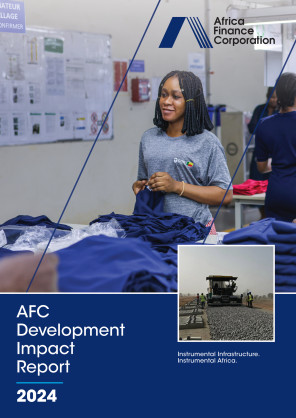AFC Infrastructure Model Adds US$50B to Africa’s GDP and Creates 7 Million Jobs
The Africa Finance Corporation (AFC) has reported that its scalable infrastructure investment model has generated over US$50 billion in GDP impact and created 7 million jobs across 36 African countries, according to its latest annual Development Impact Report.
The report tracks outcomes from 166 projects, underpinned by AFC’s four strategic pillars – industrialisation, energy transition, regional integration, and digital inclusion – and validated through over 250,000 data points.
Highlights include the growth of Infinity Power, now Africa’s largest renewable energy platform, delivering 1.4 gigawatts (GW) of clean electricity and targeting 3 GW by 2030. Climate-smart infrastructure projects have avoided 8.8 million tonnes of CO₂ emissions annually, connected 4.1 million homes to power, and mobilised US$14 billion in capital.
AFC President and CEO, Samaila Zubairu, said the figures demonstrated “tangible, large-scale impact” achieved through disciplined capital deployment and strategic partnerships. “From clean energy to industrial ecosystems and regional rail links, AFC’s investments are transforming challenges into opportunities and unlocking Africa’s potential at scale,” he added.
Notable projects include the Lobito Rail Corridor, cutting export timelines between Angola, the DRC and Zambia from 45 days to just seven; the Red Sea Power Project, positioning Djibouti to become Africa’s first 100% renewable energy nation; and the Kamoa-Kakula Copper Mine, now the world’s lowest-emission copper operation, contributing 6% to the DRC’s GDP.
Social impact has also been prioritised, with initiatives such as Gabon’s ARISE Industrial Platform achieving 42% female workforce participation, and digital access projects like M-KOPA enabling 1.7 million first-time mobile internet connections.
The report aligns with global sustainability standards, including the UN Sustainable Development Goals, and calls for greater collaboration among governments, investors and development institutions to scale proven models for climate resilience, inclusive growth, and structural transformation.
Full report available at: https://apo-opa.co/3HfWvUY



